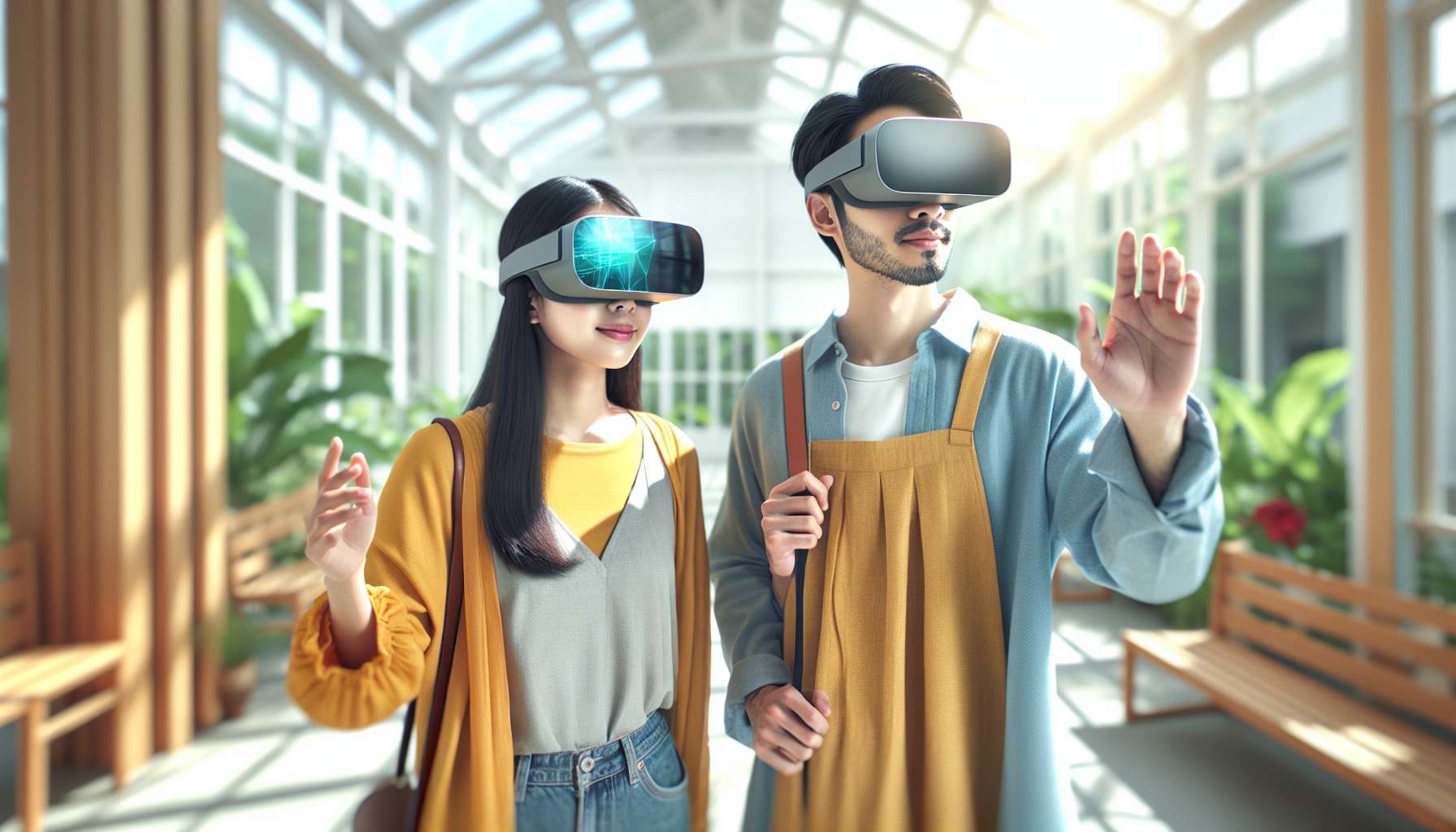The Mindful Journey: The Psychological Impact of AR in Tourism
Augmented Reality (AR) has revolutionized the way we experience the world around us. From gaming to healthcare, this cutting-edge technology has found its way into various industries, including tourism. By overlaying digital information onto the real world, AR enhances our perception and creates immersive experiences. But what is the psychological impact of AR in tourism? Let’s explore the fascinating connection between AR, engagement, and memory.
Engagement: Bridging the Gap Between Reality and Imagination
One of the key psychological benefits of AR in tourism is its ability to engage travelers on a deeper level. Traditional tourism experiences often rely on passive observation, where visitors are mere spectators. However, AR transforms this passive engagement into active participation.
Imagine exploring ancient ruins with an AR headset that brings historical figures to life, allowing you to interact with them and learn about their stories. This interactive element not only captures your attention but also stimulates your imagination, making the experience more memorable and meaningful.
Furthermore, AR can bridge the gap between language barriers and cultural differences. With real-time translation and contextual information, AR empowers travelers to connect with locals and immerse themselves in the local culture. This increased engagement fosters a sense of belonging and enriches the overall travel experience.
Memory: Creating Lasting Impressions
AR has the power to create lasting memories by enhancing our cognitive processes. When we engage multiple senses simultaneously, our brains are more likely to encode and retain information. By overlaying visual, auditory, and even haptic stimuli, AR experiences in tourism stimulate our senses and create a multi-dimensional memory.
For instance, imagine visiting a museum and using an AR app that provides additional information about the exhibits. As you explore the museum, the app triggers relevant audio guides, 3D models, and interactive quizzes. This multi-sensory experience not only enhances your understanding of the exhibits but also strengthens your memory of the visit.
Moreover, AR can evoke emotions that are deeply connected to our memories. By immersing travelers in virtual environments that replicate historical events or natural wonders, AR experiences trigger emotional responses that leave a lasting impression. These emotional memories are more likely to be recalled and shared, further enhancing the impact of the tourism experience.
The Future of AR in Tourism: Limitless Possibilities
As AR technology continues to evolve, the possibilities for its application in tourism are limitless. Imagine exploring a city with AR glasses that provide real-time navigation, personalized recommendations, and historical insights. Or envision booking a hotel room and using AR to preview the room layout and amenities before making a decision.
AR also has the potential to revolutionize the way we plan our trips. By overlaying virtual elements onto physical maps, travelers can visualize their itineraries and customize their routes based on their interests and preferences. This level of personalization not only enhances the planning process but also ensures a more tailored and satisfying travel experience.
In conclusion, the psychological impact of AR in tourism is profound. By engaging travelers on a deeper level and creating multi-dimensional memories, AR enhances the overall travel experience. As this technology continues to advance, we can expect even more innovative and immersive AR applications in the tourism industry. So, embrace the mindful journey and let AR guide you to unforgettable destinations.





